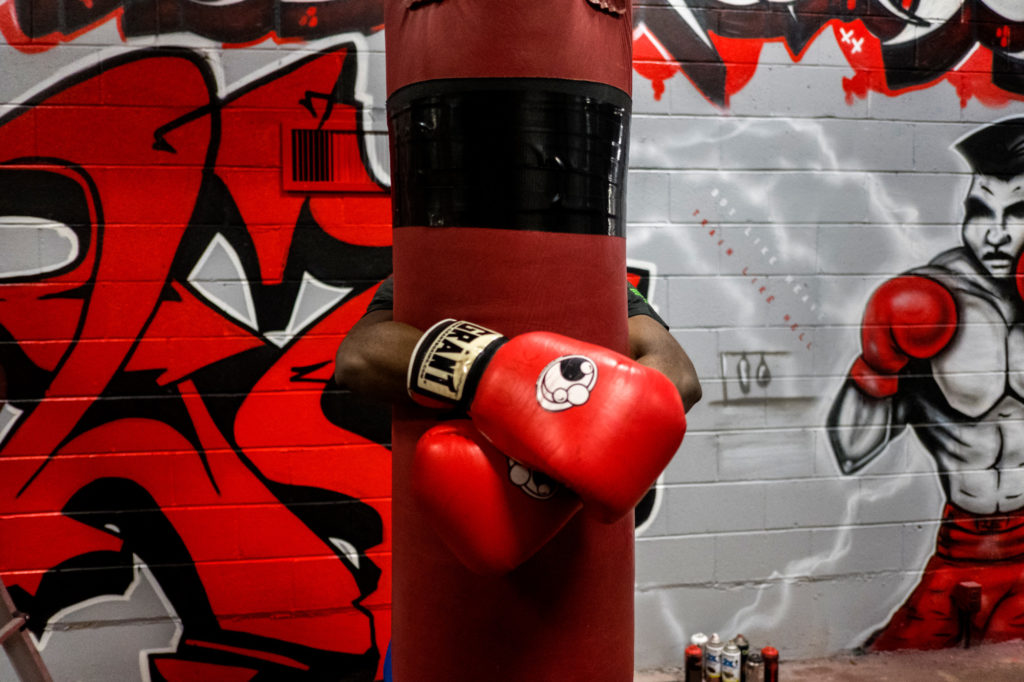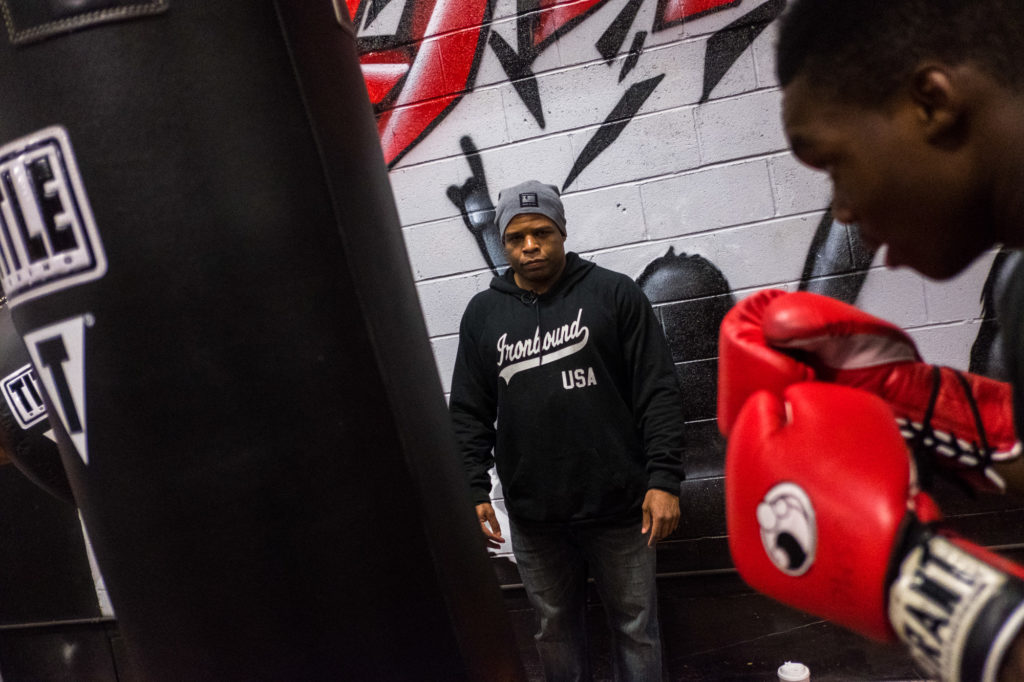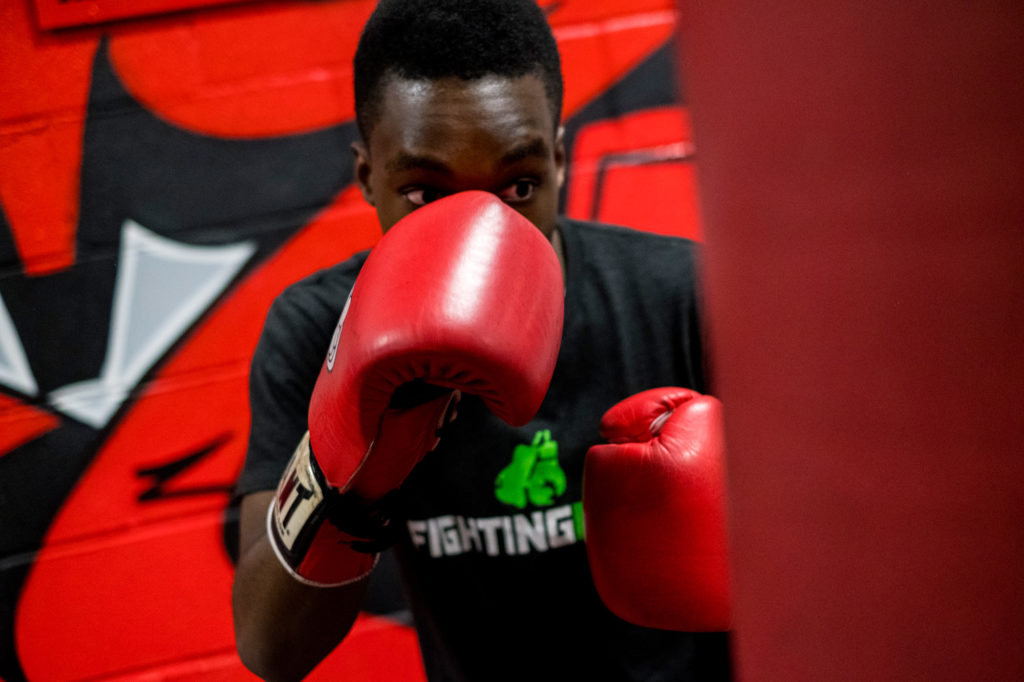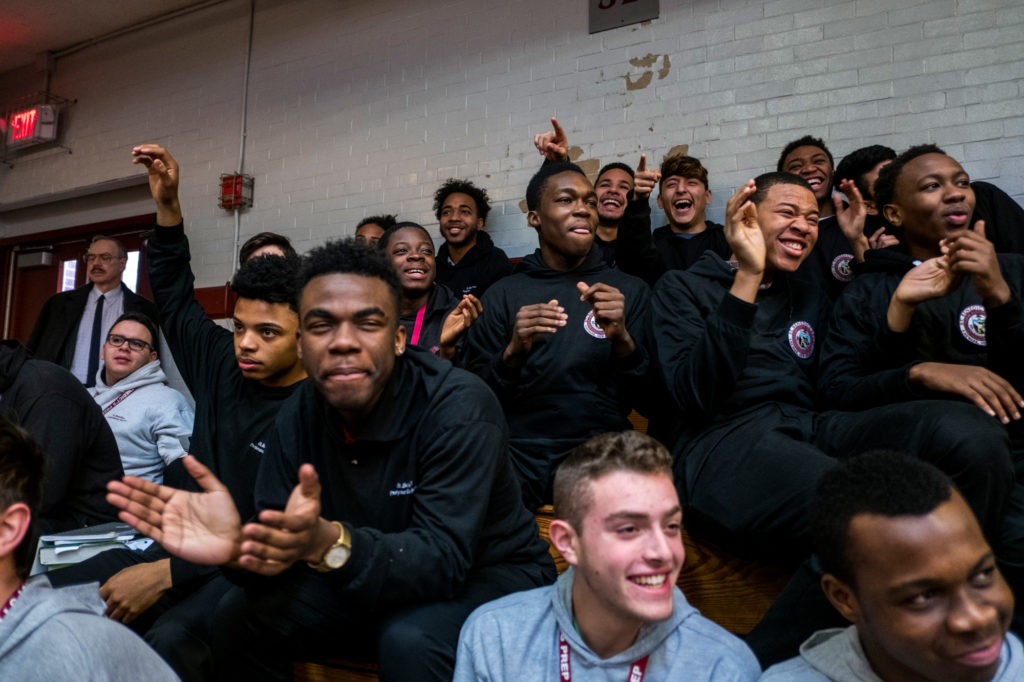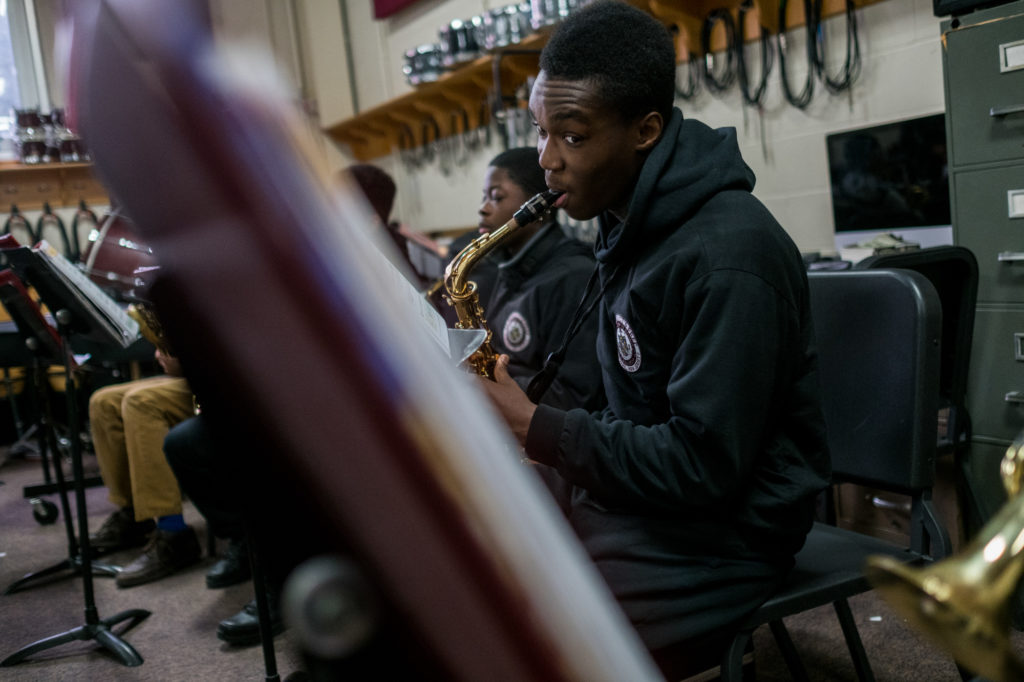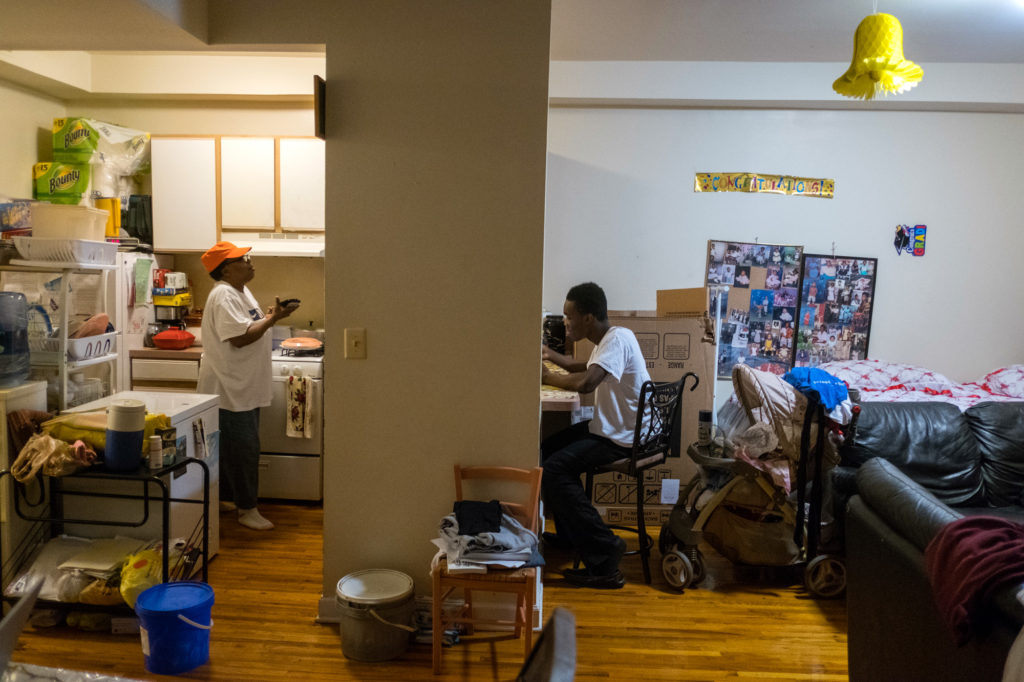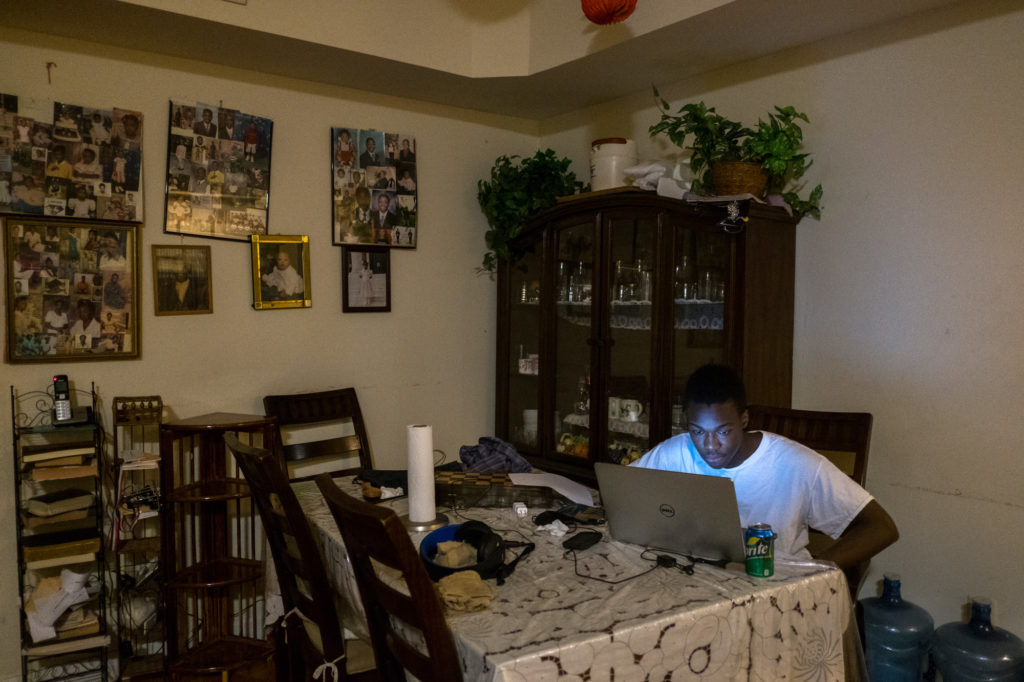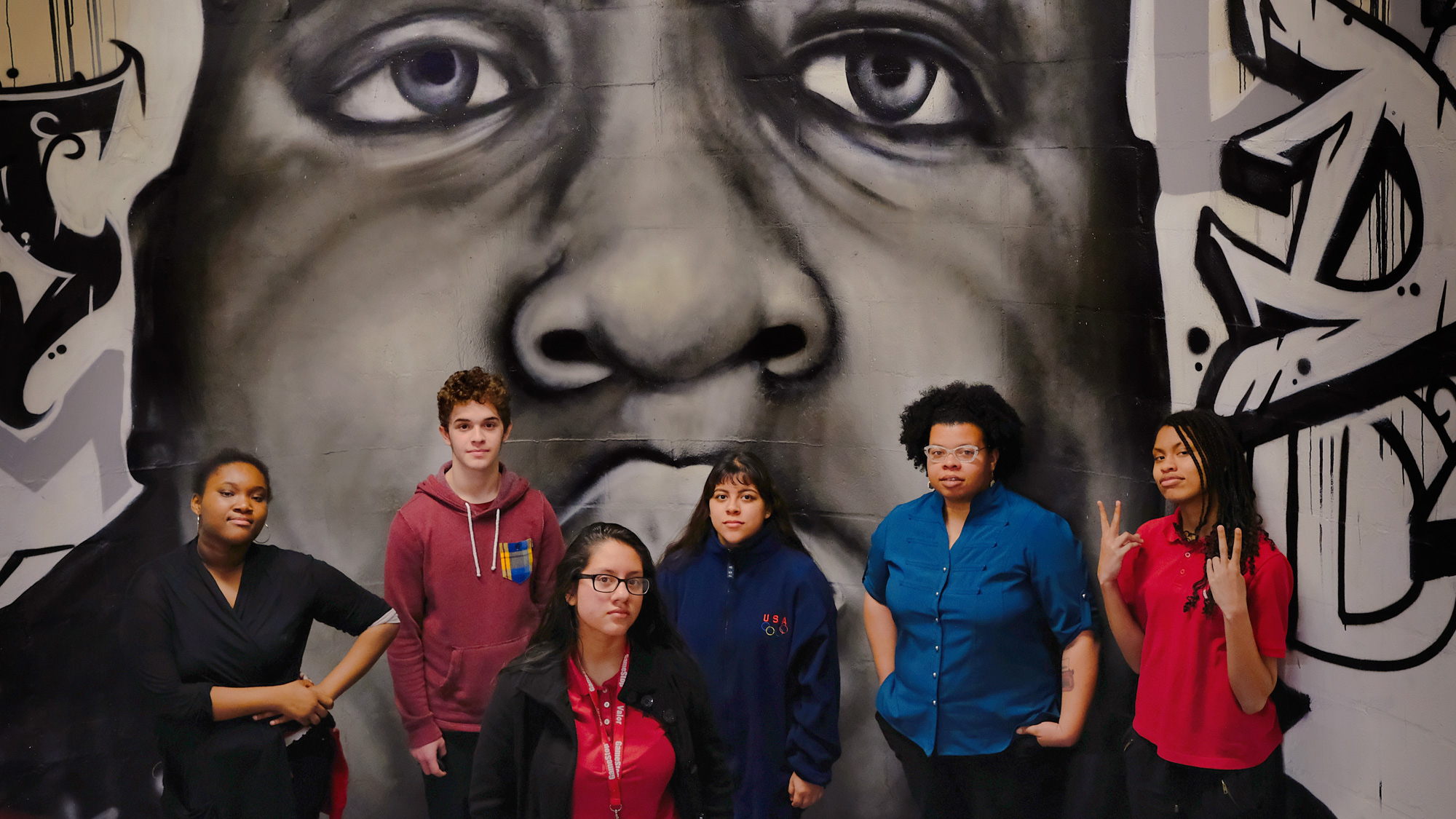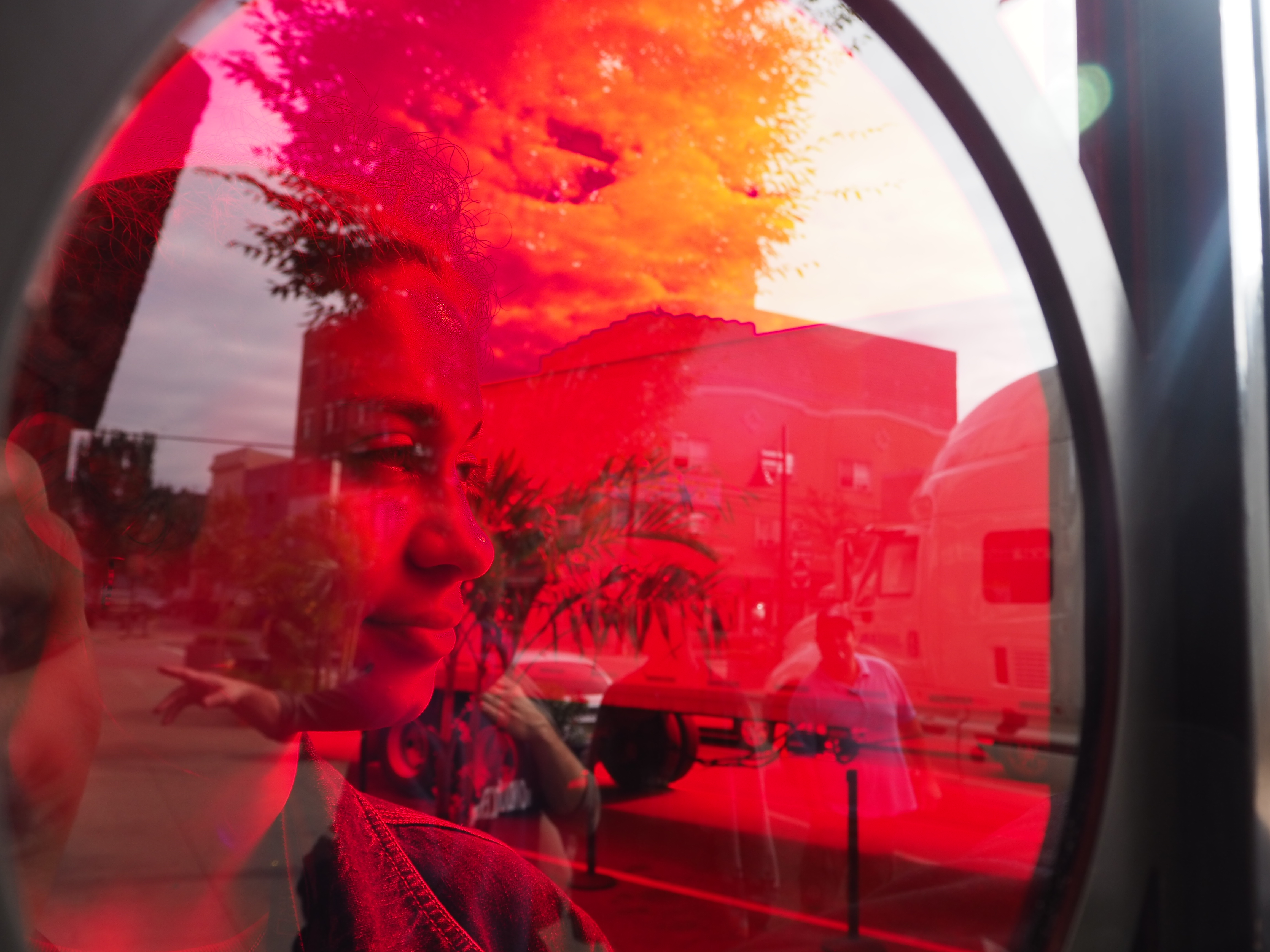On a wintery day in January, three teenage boys sat in the back seat of a white Dodge Challenger with blue racing stripes. As they wended their way from school to boxing practice in Newark’s Ironbound neighborhood, coach Mike Steadman razzed them about everything from girlfriends to grades. Then he asked, “What do you think about all the rhetoric on Muslims?” The boys—Moise from Haiti, Mike from Ghana, and Jean Paul, whose family comes from Puerto Rico—became animated on the topic.
“When they say Muslims, everybody thinks about Middle Eastern, Pakistan, Afghanistan, all those Muslims,” answered Ghanaian Mike. “You think, ‘Oh this person’s about to do something bad,’ but you don’t actually think about the Muslims that are doing something good.”
Then Moise interjected, “At the same time they brought it upon themselves. It’s like whenever they see a black person in a store, they think he’s going to rob something. Obviously someone did it before and now it’s brought upon us.”
“So if I go into a store and I get profiled because of the color of my skin, did I bring that upon myself?” asked Steadman. “That doesn’t make sense.” Then he pivoted, asking what the boys thought about policemen.
“People only talk about the bad things they’re doing, but not the good things,” responded Ghanaian Mike.
“It’s just like the Muslims,” added Moise.
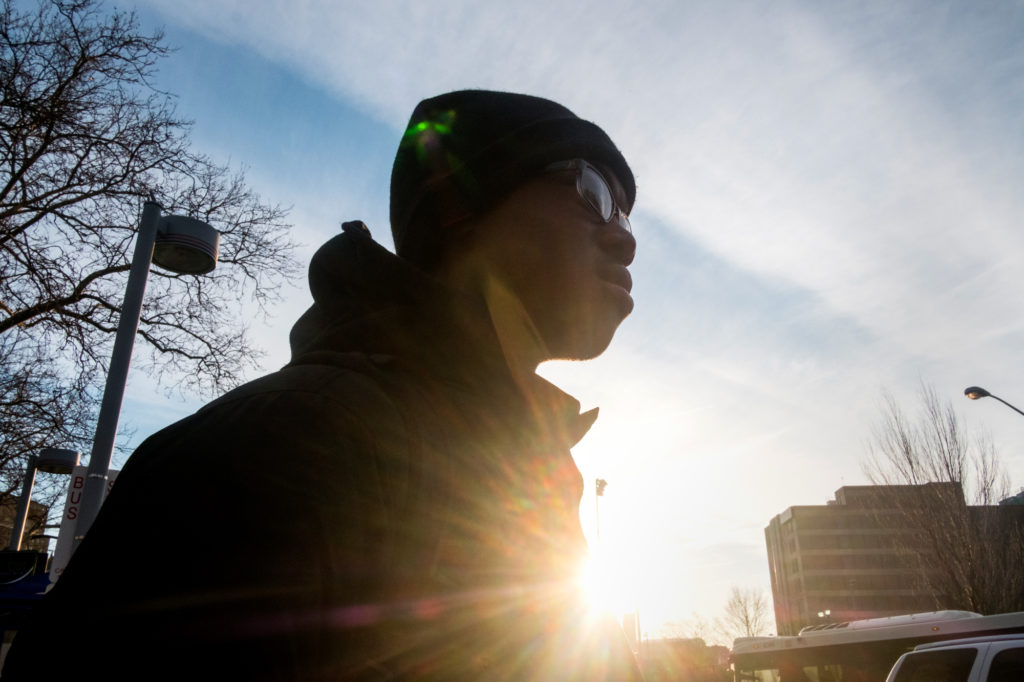
This kind of banter is typical around Steadman, a former Marine from Texas who exudes equal parts tough drill instructor and overgrown teenager. Two years ago, he founded the Ironbound Boxing Academy with his partner, Gary Bloore. The program uses boxing as a way to challenge these young men to gain focus, discipline and communication skills that will help them succeed in the future. The emphasis is on “personal branding” to better equip these boys to go on job interviews and be able to project their unique strengths. Steadman and Bloore try to fill the gap between book learning and professional development, demanding skills like shaking hands, making eye contact, showing up consistently, and articulating personal ambitions. They make a point of not calling their facility a gym, but rather an academy, where the graffiti on the walls features quotes from Toni Morrison and Mark Twain, and a third of the space is reserved for a classroom.

Mike Steadman (left) trains Moise at the Ironbound Boxing Academy. 
Moise works out several days a week at the academy’s new gym at the Ironbound Rec Center in Newark.
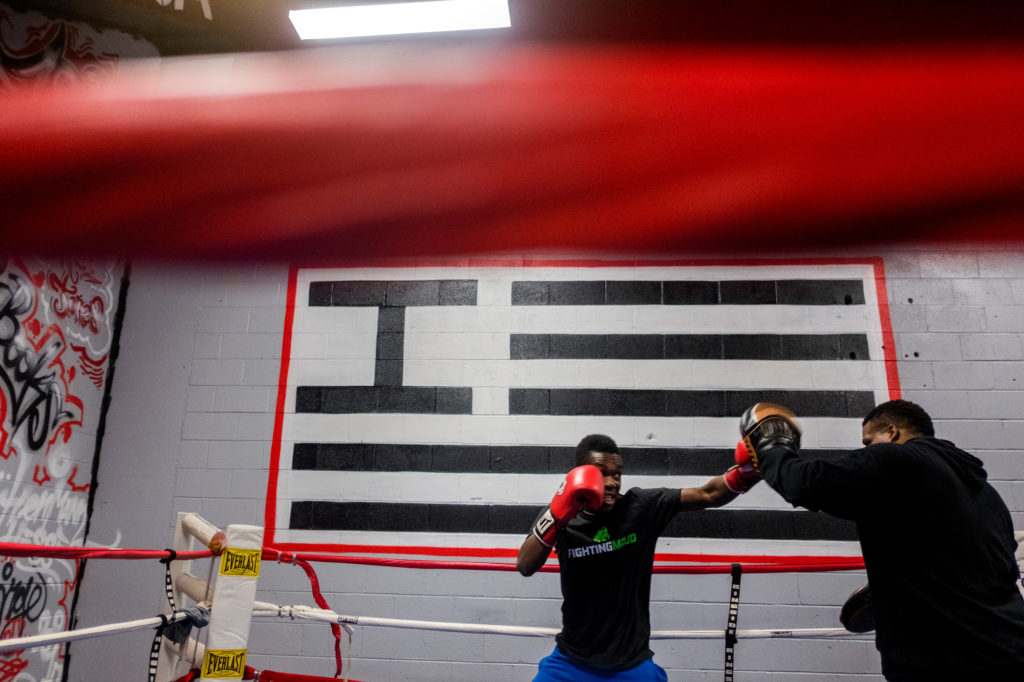
To the last man, the Ironbound boxers claim their grades have improved since they started training with Steadman. Moise, Mike and Jean Paul, along with two other boxers, Lema and Donchae, attend St. Benedict’s Prep, a legendary high school where the student body is 91% nonwhite.
The school defies the odds, with graduation rates at nearly 100%, far exceeding Newark’s citywide rate of 69%. The dynamic on campus reflects the headmaster, Father Ed Leahy, who wrangles the students’ impulses—which are often at odds with their better judgement—through his special brand of unorthodox, real world guidance. Leahy doesn’t suffer excuses or condone unexplored potential. He also doesn’t believe in abandoning the kids who need the most oversight. When Steadman came to St. Benedict’s, he found inspiration in Leahy’s approach and a perfect new base from which to deploy his own brand of perseverance and rigorous optimism.
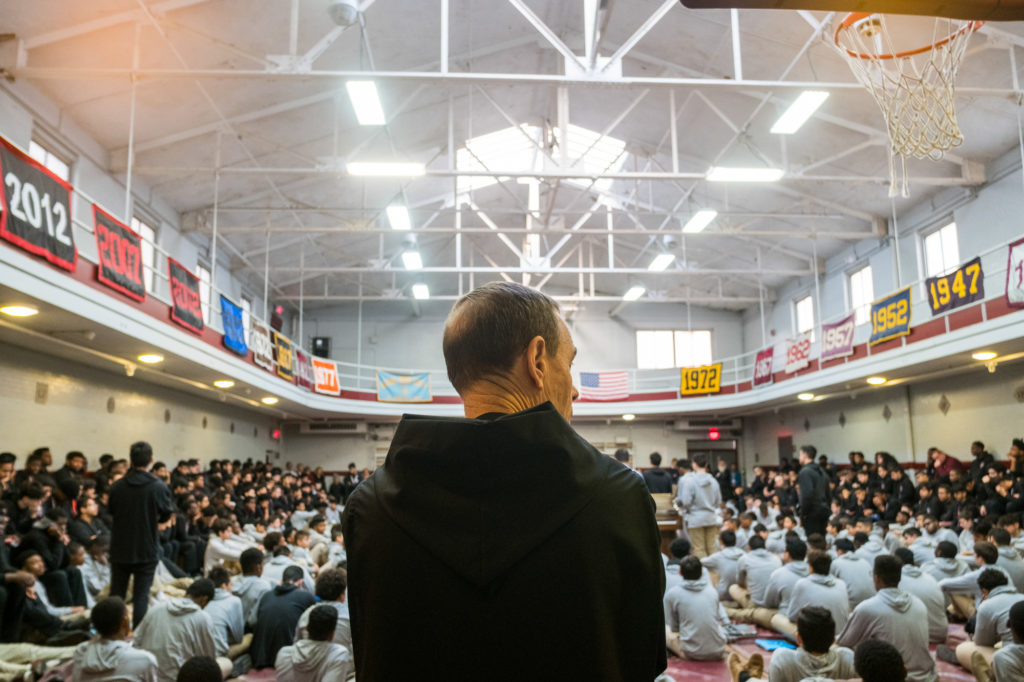

At St. Benedict’s prep, students earn black hoodies after having participated in two extracurricular activities. Underclassmen wear light grey hoodies. 
Moise earned his black hoodie after he started boxing.
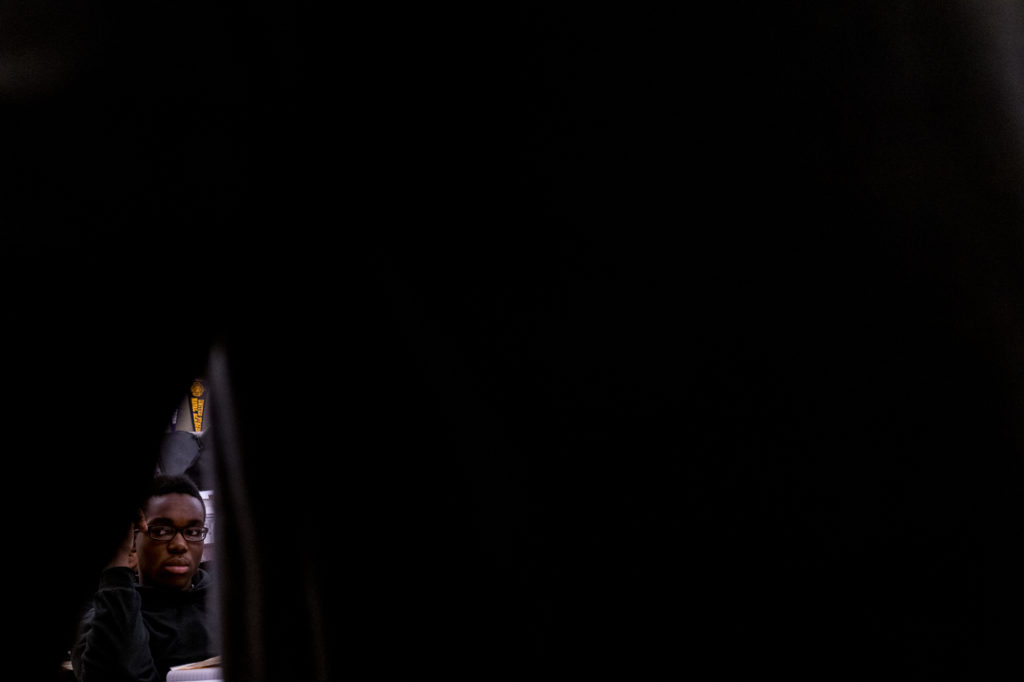
After serving in Afghanistan, Japan and the Philippines, Steadman decided to return to St. Benedict’s, where he had done an internship while he was studying at the Naval Academy. He now oversees the residence hall at St. Benedict’s with his girlfriend, Paris Monagan, a fashion designer from Chicago.
“I wouldn’t be able to live in a residence hall with 67 teenagers had I not done it with 60 marines,” says Steadman.
Although he has aspirations of teaching at the Naval Academy someday, his commitment to Newark, his boxers, his academy, are sinking deep, life-sustaining roots into the community. At the official opening of the boxing academy in March, he seemed dazed at his own achievement, as though he never really thought his dream would become reality. Now the commitment is tangible and the stakes even higher.
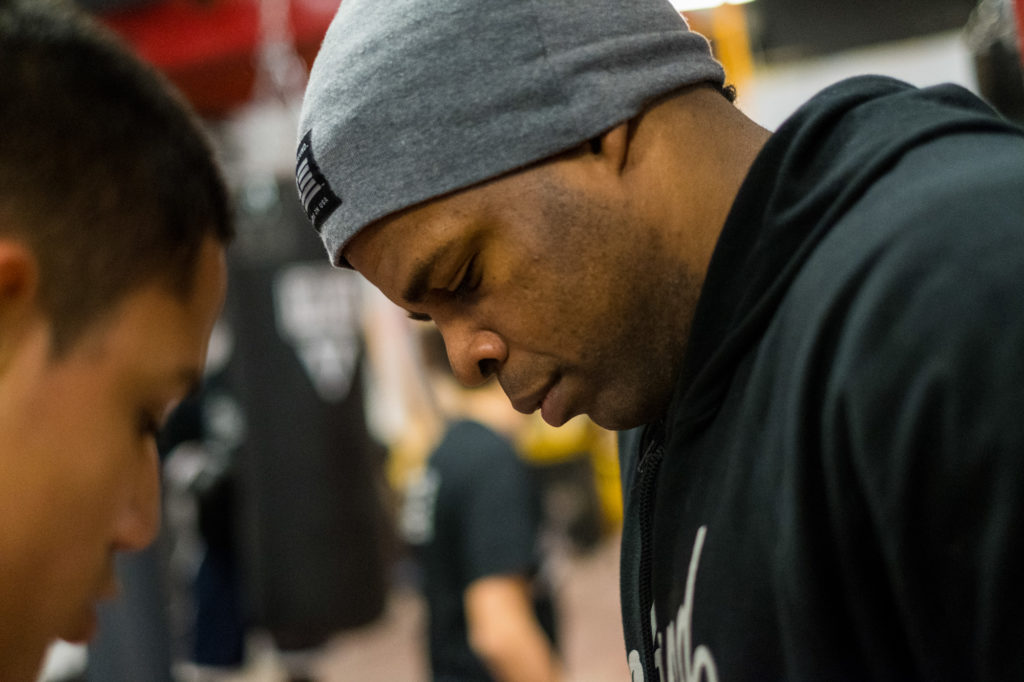
At the desolate end of Rome Street, a fortress rises beyond an overgrown football field that sits on top of a toxic waste site. On the other side of the building, a freeway overpass leads to anywhere but here. An absurdly long name is blazoned across the façade of the building: Sharpe James/Kenneth A. Gibson Recreation & Aquatic Center, commemorating the city’s first and second African American mayors. Just beyond the front entrance, a pair of double doors lead to a huge hockey arena that’s missing one critical element: ice.
Instead of hockey, about 40 young kids practice soccer drills in the arena while their parents bow to their cellphones on the bleachers. At the far end of the arena, a metal door leads to the Ironbound Boxing Academy, a space that four months ago was an abandoned shell beneath a leaky ceiling with no heat. Steadman, Bloore, their boxers and numerous volunteers transformed this tomb of a space into a vibrant hive of activity decorated with graffiti. The boxing ring was donated by a New York City nonprofit called Cops and Kids, and an assortment of boxing equipment came from Mike’s fellow Marines and Naval Academy classmates. Now, six days per week, the regular thud of gloves punching bags and the screech of a workout timer pierce the space. Interest in the gym keeps growing as word spreads through the community, with a new cohort of young women showing up recently to practice.
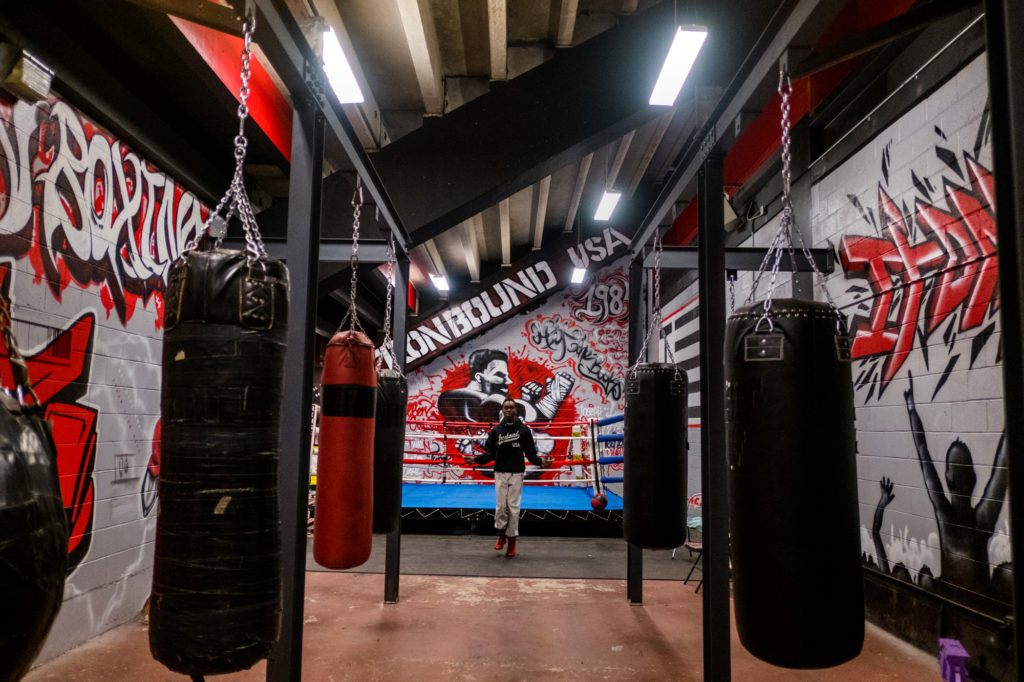
In the ring, Moise throws several rapid-fire jabs while Mike urges him on from the sideline. When I asked Moise how I should describe him to other people, he didn’t miss a beat: “He’s a cheerful, enthusiastic and hard-headed kid from Orange.” When I asked what people don’t understand about him, he replied that they don’t realize how hard he works. He explained that he even trains at home, which is a stark contrast to the fact that he was on the verge of getting kicked out of St. Benedict’s earlier this school year because he hadn’t fulfilled the requirement of participating in at least two extracurricular activities. Once he discovered boxing—and perhaps more importantly, once he got under Steadman’s wing—he mustered a level of commitment he had never exhibited before.

Moise’s mom is a home aide; his father died when he was seven. 
His older sister is in college; his younger brother will start at St. Benedict’s next year.
For Steadman, who began boxing at Annapolis as a way to channel his emotions after his mother suffered a stroke, the sport is more than a savior. He has used it as a way to channel his sense of purpose since serving in the Marines. On several occasions, he complained that the veteran narrative focuses on PTSD, concentrating on the diminished capacity of those who return from active duty.
He is determined to “flip the script” on that storyline, in the same way that he refuses to accept the notion that young men of color from Newark are destined to be less than what they’re capable of becoming.
Steadman, like his partner, Bloore, is convinced that young people can’t be blamed if the adults in their lives have failed to adequately prepare them to be successful. That simply isn’t an option for a former Marine who lives by the motto Semper Fi.
